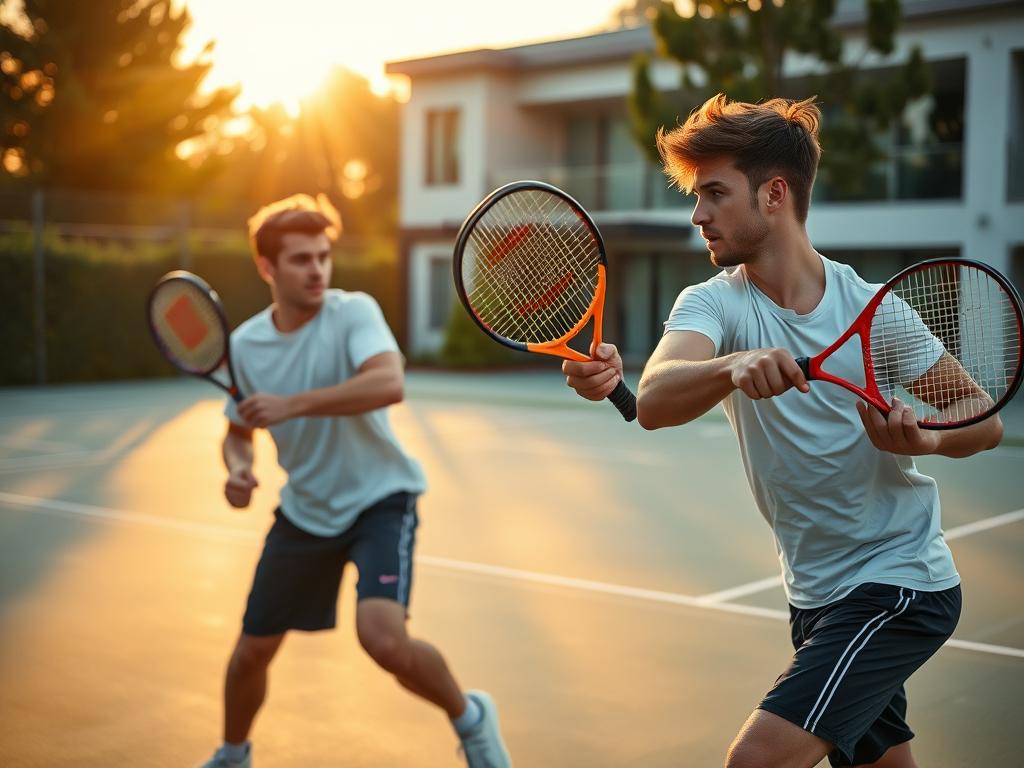The world of padel is exploding, and with it, the competition. Aspiring tournament players need more than just a good swing; they need a comprehensive training regimen that covers all bases. In 2025, the demands on padel athletes are higher than ever, with professional circuits becoming increasingly competitive and the level of play constantly evolving. This article dives into the essential training secrets that are helping emerging tournament players rise through the ranks. We’ll explore the importance of physical conditioning, technical refinement, mental fortitude, strategic acumen, and the role of effective coaching. Get ready to unlock the secrets to padel success!
Physical Conditioning A Padel Athlete’s Foundation
Padel demands a unique blend of agility, speed, and endurance. Unlike some racquet sports that prioritize power, padel requires players to be quick on their feet, capable of sustained rallies, and resilient against injury. Emerging tournament players are increasingly focusing on targeted conditioning programs.
Cardiovascular Endurance: Long rallies and multiple matches in a tournament require a strong cardiovascular base. Training should include a mix of interval training and longer, steady-state cardio sessions. Activities like running, cycling, and swimming are beneficial.
Strength and Power: While padel isn’t solely about brute strength, developing power in the legs, core, and shoulders is critical for generating pace and control. Exercises like squats, lunges, deadlifts, and plyometrics should be incorporated.
Agility and Speed: Quick changes in direction and rapid reactions are essential in padel. Agility drills, ladder work, and cone drills can significantly improve a player’s court coverage and responsiveness.
Injury Prevention: A well-structured conditioning program should prioritize injury prevention. This includes stretching, foam rolling, and exercises that strengthen the muscles around the joints, particularly the ankles, knees, and shoulders.
Technical Refinement Mastering the Strokes
Solid technique is the bedrock of any successful padel player. Emerging tournament players are dedicating more time to refining their strokes and developing greater consistency and variety. This involves not just hitting the ball hard, but hitting it with precision, spin, and tactical intent.
Forehand and Backhand: Mastering the basic forehand and backhand drives is crucial. Players should focus on developing a compact swing, consistent contact point, and the ability to generate topspin and slice. Practice drills that emphasize accuracy and depth are essential.
Volley: The volley is a key attacking shot in padel. Players should work on their reaction time, footwork, and the ability to control the ball close to the net. Different volley variations, such as the flat volley, the angled volley, and the drop volley, should be mastered.
Smash: The smash is the ultimate weapon in padel, but it’s also a high-risk shot. Players should focus on developing a consistent toss, a powerful overhead swing, and the ability to place the smash strategically. Practicing different smash variations, such as the bandeja and the vibora, is also important.
Serve and Return: The serve and return are the starting points of every point. Players should work on developing a consistent and strategic serve, as well as a solid return that puts pressure on the opponent. Varying the serve with different spins and placements can be effective.
Mental Fortitude The Unseen Advantage
Mental toughness is often the differentiating factor between good players and great players. Padel can be a mentally demanding sport, with long rallies, tight scores, and pressure situations. Emerging tournament players are recognizing the importance of mental training and are incorporating techniques to improve their focus, resilience, and composure.
Focus and Concentration: The ability to stay focused on the present moment is crucial in padel. Players should practice mindfulness techniques and visualization exercises to improve their concentration and block out distractions.
Resilience and Composure: Padel is a game of errors, and players will inevitably face setbacks. Developing resilience and the ability to bounce back from mistakes is essential. Players should practice positive self-talk and learn to manage their emotions effectively.
Pressure Management: Playing under pressure can be daunting, but it’s also an opportunity to perform at your best. Players should practice playing in simulated pressure situations and develop strategies for managing their nerves and staying calm under pressure.
Confidence and Self-Belief: Believing in your abilities is crucial for success in padel. Players should focus on their strengths, celebrate their achievements, and maintain a positive attitude, even in the face of adversity.

